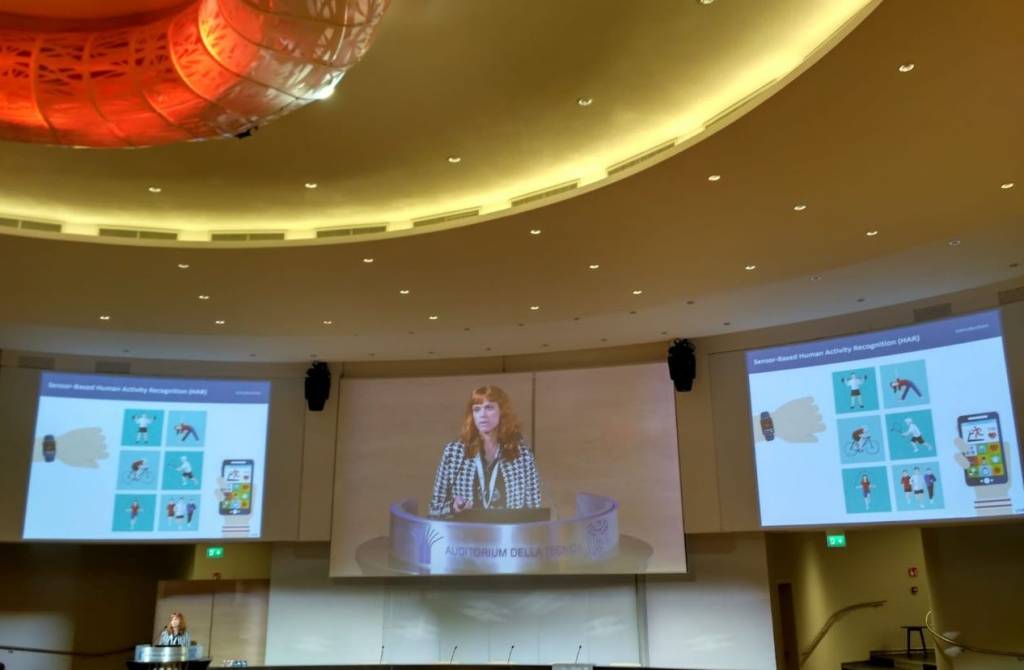Jessica Sena represents the Smart Sense Laboratory at the EUSIPCO conference in Italy
[/trx_title]

Last week, Rome was the venue for the 26th edition of the European Signal Processing Conference, EUSIPCO 2018, and the Sense lab researcher Jessica Sena was there to present her work on Deep Convolutional Neural Networks (DCNN) applied to human activity recognition based on wearable sensors. The conference, which is currently assigned a Qualis A2 score (the second highest) by the Brazilian Coordination for Improvement of Higher Education Personnel (CAPES), was held September 3-7 and brought together leading researchers from the four corners of the globe.
Recently, wearable devices have gained space as a relevant source of data for sensor-based Human Activity Recognition (HAR). However, there are two issues: the large number of heterogeneous sensors available and the temporal nature of the sensor data. To handle these issues, Jessica proposed a multimodal approach that processes each sensor separately and, through an ensemble of DCNNs, extracts information from sensor data at multiple temporal scales.
The ensemble uses convolutional kernels with a different height for each DCNN. Since the number of rows in the sensor data reflects the data captured over time, each kernel height reflects a temporal scale from which patterns are extracted. Consequently, the approach is able to extract from simple movement patterns such as a wrist twist when picking up a spoon, to complex movements, such as the human gait.
Commenting the experience Jessica said “the conference was important to outline new paths for my research because I had the opportunity to exchange ideas with researchers from different areas and gain new perspectives”. “In addition, I was able to make contacts for future work in conjunction with other universities around the world”, she pointed out.
The proposed multimodal and multitemporal approach outperforms previous state-of-the-art works in seven important datasets using two different experimental protocols. Besides that, Sena demonstrated that the use of her set of kernels improves sensor-based HAR in another multi-kernel approach, the widely employed Inception network.
The researcher
Recently accepted for the PhD in Computer Science at UFMG, Jessica Sena has a degree in Information Systems and will defend her master’s thesis next month. Her research, which covers topics that include computer vision and human activity recognition, is supported by the National Council for Scientific and Technological Development (CNPq).
The conference
In its 26th edition, the EUSIPCO is organized by Roma Tre University, the youngest among the public Universities in Roma, and take place in the EUR (Esposizione Universale Roma) area that was intended to host the Universal Exposition in 1942.

